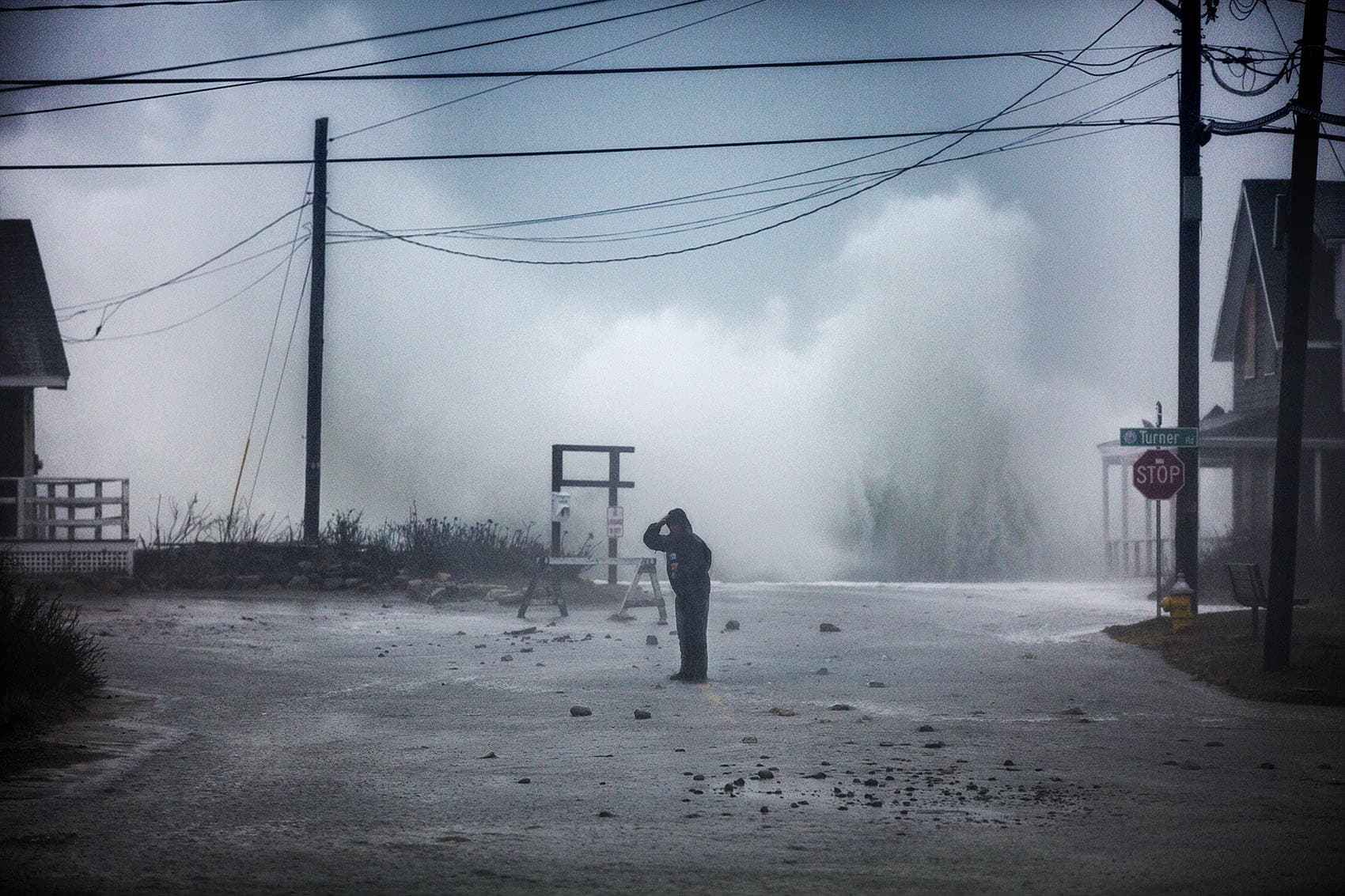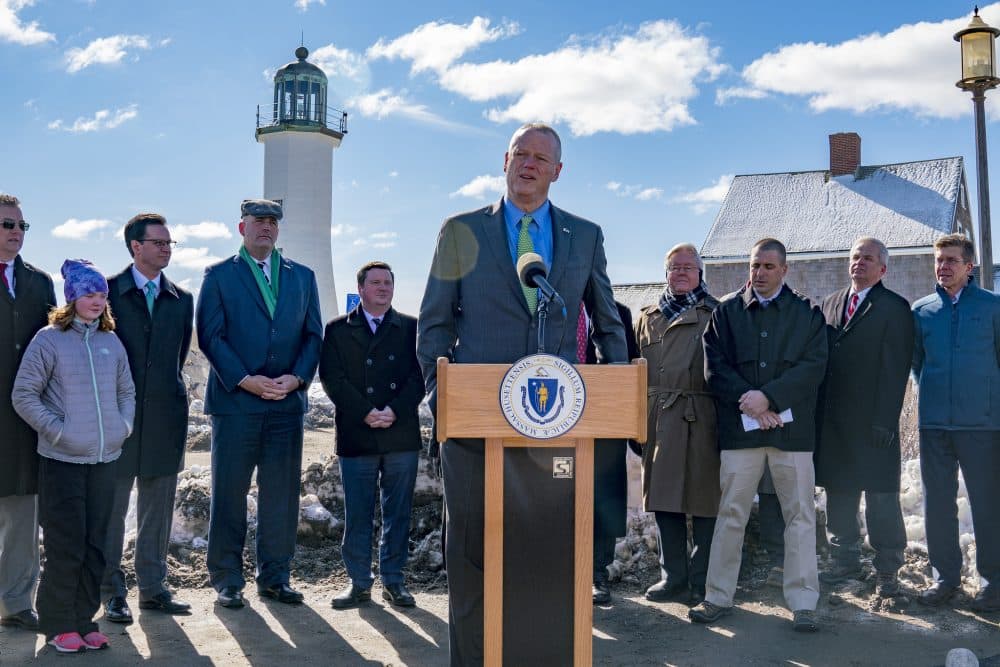Advertisement
Gov. Baker Announces Climate Resiliency Bond Bill
Resume
Gov. Charlie Baker chose to announce a new climate resiliency initiative in Scituate, beneath a lighthouse, in a spot that just two weeks ago was flooded in a nor'easter that combined with one of the highest tides on record.
But Baker's message Thursday was intended for the entire state:
The simple truth of the matter is we have 351 cities and towns in Massachusetts, and they all need a vulnerability plan, and they all need a hazard mitigation plan, and they all need the support of the commonwealth ... to do the work that’s associated with delivering on that set of initiatives.
On Thursday Baker submitted to the Legislature a $1.4 billion bond bill — which would authorize the governor to spend the money at a future date — with $300 million slated "for critical infrastructure and the prevention, adaptation and mitigation of climate change," according to a letter Baker submitted with the bill.
Climate resilience is just one element of the bond bill. Also included is $580 million for "deferred maintenance and recreational resource stewardship," according to the letter, and $290 million for investments at the community level.
The new initiative piggybacks on an executive order the governor signed in 2016, creating a climate change commission to begin the process of evaluating the state's resiliency needs. That effort has drawn participating from roughly 70 cities and towns across the state, and now the administration hopes the rest will join forces.

Jack Clark, of the environmental group Mass Audubon, was in Scituate for the announcement, and says Baker's plan sets Massachusetts on the right course.
"The governor ... made a good first step in planning for climate change impacts and for funding those impacts, whether it’s rebuilding seawalls or dams, or removing them to make for a more resilient coast," Clark said.
One policy likely to arise is a state buyback program — to acquire properties in vulnerable areas.
State Energy and Environmental Affairs Secretary Matthew Beaton told reporters the legislation does not propose such a program per se, though one could be possible under the current language.
But Beaton and Baker are clear: Communities should be the ones to decide what's best for them.
The administration is hoping the bond bill will lead to funding to help cities and towns assess their climate resiliency needs. And that would lead to a statewide resiliency plan.
"Right now we are trying to design the playbook, we are trying to gather all the information we have," Beaton said. "We’re going to take all the information we get from the communities and the other secretariats and create a statewide plan, and have for the first time an understanding of what the vulnerable assets are, [and] overlay that onto ... climate projections."
Once that happens, hundreds of millions would be set aside to execute on some of the projects — whether that means more seawalls and dams, or more dunes and wetlands.
Clark, of Mass Audobon, says the initiative would lead to an inevitable debate: How much should communities retreat from rising tides? And how much should they stand their ground?
"We will be doing both," Clark said. "There will have to be a retreat from the shoreline for those properties that are going to be going underwater."
He added: "We are expecting, by the end of the century, a 7-foot rise in sea level. You put on top of that the storm surge or a big tide or a storm, and a lot of coastal Massachusetts is in trouble."
Some industry leaders will lean toward entrenchment over retreat, like the Commercial Real Estate Development Association. The group's CEO, David Begelfer, said with people residing in vulnerable areas, and businesses operating there, no one should be talking about throwing people out of their homes.
"There’s a whole different question as far as if a home is destroyed, do you want to rebuild?" Begelfer said. "But you certainly want to be able to provide protection for those who are residing along the coastal [areas].
"This is a big issue, and it affects a lot of people and a lot of investment."
Some of Baker's opponents were critical of his plan, saying it doesn't go far enough.
Democratic gubernatorial candidate Bob Massie said the spending outline is just a drop in the bucket, when the cost of a Boston Harbor barrier could be $30 billion.
Massie tweeted after Baker's announcement: "We now need to invest to protect our coastline—so about time Governor Baker, but where is the leadership on reducing emissions that cause the harm?"
This segment aired on March 15, 2018.
